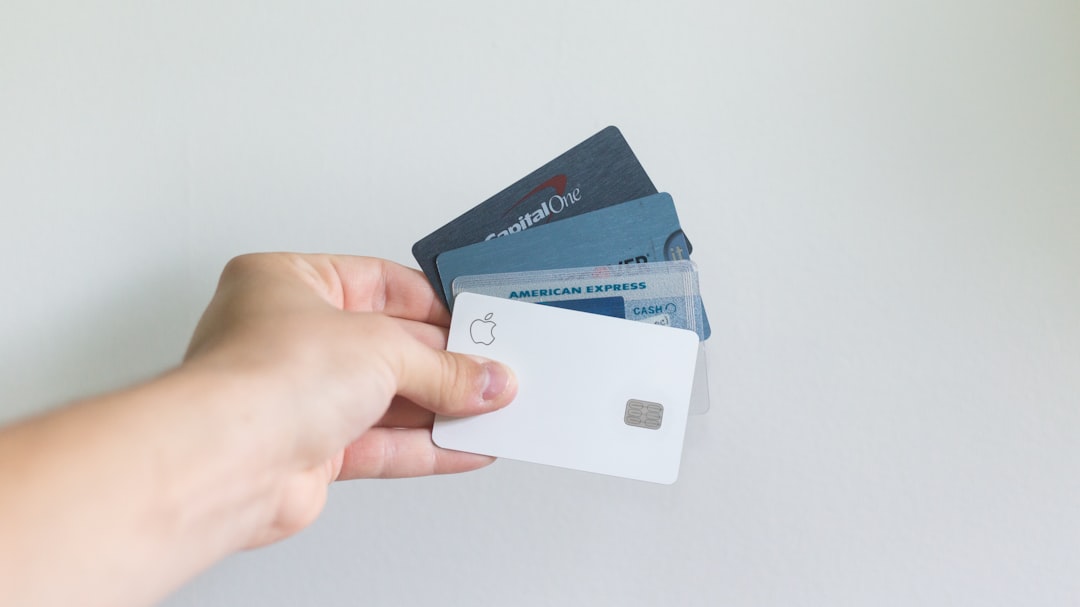Credit Card Debt Consolidation helps unemployed individuals manage high-interest debts by combining multiple loans into one with lower rates, simplifying repayment, reducing stress, and regaining financial control while seeking new employment opportunities. However, careful evaluation of flexible terms and long-term implications is crucial to avoid further strain during economic challenges.
Unemployment and debt go hand in hand, creating a challenging cycle. When job security is uncertain, managing multiple debts can seem impossible. This article explores how debt consolidation loans, especially those offering flexible repayment options, provide a lifeline for individuals struggling with both unemployment and overwhelming debt. We delve into the process of credit card debt consolidation, offering insights to help navigate these options carefully. Understanding your financial tools is crucial when aiming for stability and a clear path forward.
- Understanding Unemployment and Debt Burden
- The Role of Debt Consolidation Loans
- Exploring Flexible Repayment Strategies
- Credit Card Debt Consolidation: A Deep Dive
- Navigating Repayment Options with Care
Understanding Unemployment and Debt Burden

Unemployment can significantly impact an individual’s financial stability, often leading to a heavy burden of debt, especially with mounting credit card debt. When job prospects fade, many find themselves caught in a web of financial challenges. This period might involve defaulting on payments due to a lack of income, causing interest rates to accrue and making the debt even harder to repay.
Debt consolidation loans offer a potential solution by providing funds to pay off multiple debts, including credit card debt. With flexible repayment options, borrowers can manage their finances more effectively during challenging times. This approach allows them to focus on rebuilding their financial health while alleviating the stress of numerous payment deadlines.
The Role of Debt Consolidation Loans

Debt consolidation loans offer a strategic approach to managing financial obligations, particularly for individuals grappling with unemployment and multiple debt sources. In many cases, high-interest credit card debt can accumulate quickly, becoming a significant burden. Debt consolidation provides an opportunity to streamline these debts into a single loan with a potentially lower interest rate, making repayment more manageable.
This process allows borrowers to focus on repaying one loan rather than several, simplifying their financial landscape and easing the stress associated with multiple due dates. By consolidating credit card debt, individuals can gain control over their finances, allocate resources more efficiently, and ultimately work towards overcoming unemployment with a clearer path to financial stability.
Exploring Flexible Repayment Strategies

When it comes to managing unemployment and its accompanying financial challenges, exploring flexible repayment strategies for debt consolidation loans can offer a much-needed breath of relief. These options allow borrowers to tailor their repayments to suit their income patterns, providing a sense of control and potentially reducing the psychological burden associated with debt.
Credit Card Debt Consolidation provides a practical solution, enabling individuals to combine multiple high-interest debts into a single loan with a lower, more manageable interest rate. By doing so, they can simplify repayment processes, eliminate the confusion of multiple due dates, and free up financial resources that were previously allocated to debt servicing. This strategy empowers those affected by unemployment to regain some financial stability while focusing on securing new employment opportunities.
Credit Card Debt Consolidation: A Deep Dive

Many individuals grappling with unemployment find themselves burdened by credit card debt, which can seem overwhelming. Credit card debt consolidation offers a potential lifeline in such situations, providing a structured approach to managing multiple high-interest debts. By consolidating credit card debt, borrowers can simplify their financial obligations and potentially reduce overall interest charges.
This process involves taking out a new loan to pay off existing credit card balances. The key advantage lies in the flexibility of repayment terms offered by some lenders. With these loans, individuals can spread out their repayments over an extended period, making it easier to manage cash flow while they seek employment or explore other avenues for debt relief. This strategy allows them to regain control and potentially improve their financial situation, even during challenging times like unemployment.
Navigating Repayment Options with Care

When considering debt consolidation loans, especially during challenging economic times like high unemployment, it’s crucial to approach repayment options with caution. Many individuals turn to Credit Card Debt Consolidation as a strategy to simplify multiple high-interest credit card payments into one manageable loan with a potentially lower interest rate. This method can free up cash flow and reduce the psychological burden of numerous bills. However, it’s essential to choose a consolidation plan that aligns with your current financial situation and future prospects.
Opting for flexible repayment terms can provide much-needed relief in the short term, but it’s vital to ensure you can meet these new obligations without creating further financial strain. Careful planning and understanding the potential long-term implications of different repayment structures are key to making an informed decision. This is particularly important when navigating unemployment periods, where income volatility may impact your ability to consistently make loan repayments.
Unemployment and debt can create a seemingly insurmountable challenge, but understanding your options is key. Debt consolidation loans offer a viable solution, especially with flexible repayment strategies now available. While credit card debt consolidation deserves special attention due to its prevalence and potential benefits, it’s crucial to approach all repayment plans with caution. By carefully navigating these options, individuals can regain control of their finances and pave the way for a more secure future despite temporary setbacks like unemployment.
